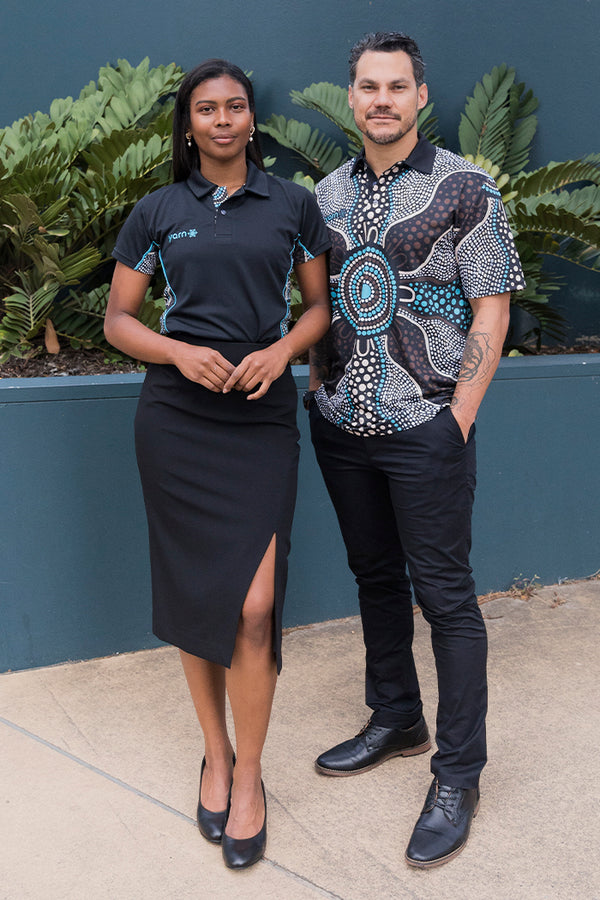Gumbaynggirr Giingana Freedom School, NSW’s First Bilingual School opening in Coffs Harbour, 2022

Children participating in the new school's pilot program in 2020. Courtesy of BMNAC, 2021.
The Bularri Muurlay Nyanggan Aboriginal Corporation (BMNAC) is excited to announce the registration of NSW’s first bilingual school, the Gumbaynggirr Giingana Freedom School (GGFS). NSW Minister for Education and Early Childhood Learning, The Hon. Sarah Mitchell, MLC, announced that the Aboriginal Independent primary school will open in February 2022 and will teach in both English and the local Gumbaynggirr language. The Gumbaynggirr Giingana Freedom School’s curriculum will have a focus on Gumbaynggirr language and culture systems, with the teaching based on Gumbaynggirr philosophies and world view (ABC News, 2021).
In a press statement, the BMNAC CEO and proud Gumbaynggirr and Bundjalung man, Clark Webb (2021), said:
“This school is important on a number of levels. Firstly, it is key to the revitalisation of Gumbaynggirr language and culture, and secondly, it is of the utmost importance that our children can attend a school that holds their culture in the highest regard, ensuring they feel culturally safe on a daily basis.”

BMNAC Founder/CEO Clark Webb, Programs Director Nathan Brennan and Board Member Auntie Julie Carey (L to R) are excited about the school’s accreditation. Courtesy of BMNAC, 2021.
Webb is also excited to announce that the school will open in line with the International Decade of Indigenous Languages (2022-2032) - a resolution adopted by the UN General Assembly in December last year, declaring human rights to empower Indigenous language users. The Declaration calls for a Global Action Plan to implement the internationally recognized rights of Indigenous peoples and UNESCO's standard-setting instruments. These strategic recommendations will work to empower “Indigenous peoples’ rights to freedom of expression, to an education in their mother tongue and to participation in public life using their languages, as prerequisites for the survival of Indigenous languages many of which are currently on the verge of extinction” (UNESCO, 2020).

CEO Clark Webb shows some pilot students how to find a specific tree for spear-making. Courtesy of BMNAC, 2021.
The Gumbaynggirr Giingana Freedom School will operate from the Coffs Harbour TAFE Glenreagh Street Campus, and will commence with 15 students from kindergarten through to year 2. Eventually, the school will expand to enrolling students from kindergarten to year 6, and onwards to high school as the cohort progresses. Webb also announced, to ABC News (2021), that the school is in the process of recruiting a principal, and has already appointed a classroom teacher and two Gumbaynggirr language teachers.
In an interview with ABC News, Webb (2021) said that the location of the school has been chosen to enable for on-country learning:
"It's great for us because it's sort of central to everything but also then connects to the Cross Creek Loop Walk and the [North Coast Regional] botanic gardens … so we can really engage our children in on-country learning quite easily."
Webb stated that the school’s combination of on-country and academic-centric learning will provide the student’s with a “really holistic education.” According to the American University of Washington DC (2020), the holistic approach has gained steam in Western education circles in recent years as many schools have been struggling to improve student learning outcomes. This comes as no surprise to Indigenous cultures, as educating the whole person beyond core academics has been central to Indigenous cultural and community systems for millennia. Webb told ABC News (2021) that this type of education is “important for our children” as they need to be supported and nurtured by their community. Through holistic teaching methods, the school will provide Gumbaynggirr students with the opportunity to discover their identity, to find meaning within their community and to develop a compassionate understanding of the world around them.

Children participating in on-country learning in Gumbaynggirr Country in the new school's pilot program, 2020. Courtesy of BMNAC, 2021.
Bularri Muurlay Nyanggan Aboriginal Corporation
BMNAC is a not-for-profit, aiming to revitalise Gumbaynggirr language and maintain strong cultural identity and educational success for Indigenous youth. Established in 2010 in Coffs Harbour on the north coast of NSW, the Aboriginal Corporation’s footprint extends to the Nambucca Valley and Grafton. The corporation’s motto “Bularri Muurlay Nyanggan,” in Gumbaynggirr language, translating to “two path strong” empowers Indigenous youth to be “strong in culture and strong in education.” BMNAC’s (2021) goal is to ensure that Indigenous youth in the community optimise their literacy and numeracy skills and complete school at the same rate as non-Indigenous youth. This is so that they have equal opportunities to compete in the job market, whilst also “being knowledgeable and proud of whom they are as Aboriginal people.”
Children participate in after school GLC tutoring programs. In 2019, 67% of regular GLC students achieved a reading level at or above what is expected for their age. Courtesy of BMNAC, 2021.
In an effort to provide Indigenous youth with cultural and educational programs, the corporation started out with establishing two after school Goori Learning Centres (GLCs). Since 2010, BMNAC has engaged more than 500 people in these after school programs, at the Wongala Estate Aboriginal Reserve and Woolgoolga High School, every year (BMNAC, 2021).
At Yarn, we are passionate about supporting Indigenous non-for-profits and spreading awareness to the wider Australian community about the importance of revitalising and sustaining Indigenous language, culture, art and community. We hope that by BMNAC establishing the Gumbaynggirr Giingana Freedom School, it will mobilize further resources for the support and promotion of First Languages becoming an integral part of education entities. By sharing this incredible news, we hope that the wider Australian community can understand that education is a powerful tool in taking steps towards reconciliation as a nation.



















